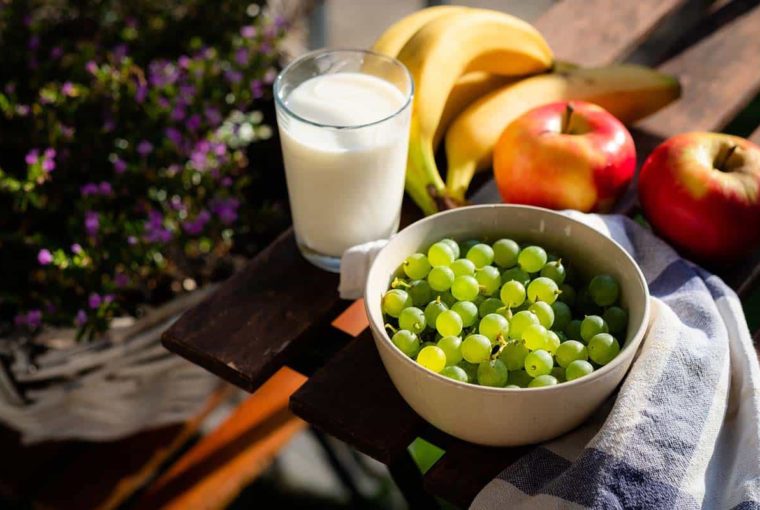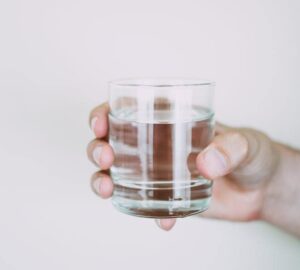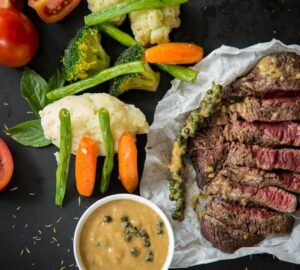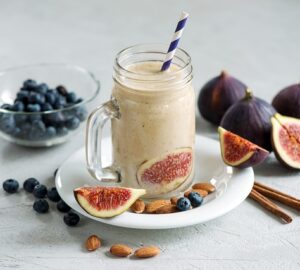Electrolytes are the charged minerals found in the water inside the body. These are vital for muscles to contract and nerves to fire. Electrolytes are also necessary to make the blood clot, strengthen bones, and regulate heartbeat. Moreover, electrolytes control the amount of fluid in the body and the level of acidity.
The key electrolytes include phosphorus, bicarbonate, magnesium, chloride, sodium, potassium, and calcium. Once you sweat more, you’ll lose more electrolytes, especially if you exercise on a hot day or if you’re ill with diarrhea or vomiting. Under such conditions, you might need more electrolytes than usual.
How Do Electrolytes Work?
Electrolytes are electrically-charged chemicals that conduct electricity when dissolved in water, which supplies energy to your body and helps its overall function. Everyone needs electrolytes for survival, as most automatic processes in your system depend on these tiny electric currents. Some common electrolytes that can be found in your body are potassium, magnesium, calcium, sodium, and phosphate.
When it comes to rehydrating your system or maintaining your body’s water levels, electrolytes from natural sources are the best, as you can obtain more health benefits than simply hydration. Oftentimes, having these foods and drinks with electrolytes are enough for your diet and there would be no need to supplement with oral rehydration supplements and sports drinks.
Are You Dehydrated?
While regular electrolyte supply is vital for everyone, some people still don’t get enough of these in their diet. If you lose too much fluid in your body and they’re not replenished with electrolytes, you could be at risk of dehydration. Replenishing your body with electrolytes is particularly important during the warmer months when performing rigorous physical activities, or experiencing a fever.
If you’re unsure if you’re dehydrated and require immediate rehydration, here are the top signs that you should be wary of:
- Thirst
- Dry tongue or mouth
- Dizziness and fatigue
- Extremely dry skin
- Muscle weakness
- Lack of focus
Fortunately, there are numerous sources of electrolytes, one of which is DripDrop. The other options you may consider are the following:
Green Leafy Vegetables
One of the green leafy vegetables that contain electrolytes is spinach. Packed with vitamins K, A, and C, spinach is also rich in magnesium. Although canned spinach might not be at the top of most diets, adding spinach to your smoothies or enjoying a spinach salad can be a good idea.
Another leafy green is Kale, which is known for its dark, robust leaves that can be added to stir fry meals. It’s also made into chips and some people just add it into any meals they want to prepare, allowing them to benefit from the nutrients and electrolytes it provides.
Nuts
The majority of nuts, particularly cashews, almonds, and Brazil nuts, contain a lot of magnesium and a significant amount of potassium and calcium. Magnesium is essential to regulate blood pressure and blood sugar level. In addition, magnesium deficiency may result in high blood pressure and diabetes.
Consumed as a snack or delicious nut butter, nuts are a good meat replacement for those who have a plant-based lifestyle.
Milk
Milk is fortified with vitamin D, calcium, and potassium, which are all responsible for strengthening our bones and enable the body to maintain normal blood pressure.
Even if some may shy away from milk as a source of electrolytes, fortunately, there are other available milk varieties that are lactose-free.
Pumpkin And Sunflower Seeds
Both seeds are packed with phosphorus and magnesium. Having enough phosphorus is important for bone and muscle health. It may also help you maintain a healthy immune system.
To enjoy pumpkin and sunflower seeds, you can just sprinkle a handful of these on your favorite salad or you may eat them as a snack during your free time.
Fish
Fish is known for its omega-3 fatty acids. It’s a staple for people who want to consume a certain amount of protein but want to avoid consuming meat. Fish is also a great source of potassium and sodium, making it a good electrolyte booster.
Some of the amazing benefits of eating fish, such as tuna, salmon, and trout, include protection from vision degeneration, brain function booster, and promote heart health.
Replacing red meat with fish at least twice or once a week is a simple way to enjoy fish and its health benefits.
Broccoli
Renowned as one of the best superfoods available today, broccoli is an anti-carcinogen giant, which also contains a high amount of electrolytes. It’s a good source of calcium, especially for those who aren’t eating dairy products. Broccoli is also full of potassium and magnesium.
The body needs calcium for bone generation, which is important throughout one’s life since bone cells break down constantly to make room for new bones. If you have calcium deficiency, you may suffer from weak bones, which may result in a condition known as osteoporosis. Calcium is also required for healthy blood clotting, normal heart function, and prevents excessive bleeding.
Potato
Once not laden with butter or heavy cream, potatoes can be an excellent source of potassium, fiber, and vitamins C and B. This healthy food also improves immunity and curbs inflammation in the body.
Potatoes are also one of the popular vegetables that aren’t just packed with nutrients, but also versatile for preparing any meals.
Coconut Water
Coconuts may not be accessible in many places, but cartons of coconut water in the supermarkets can be your source of electrolytes. There’s a reason why coconut water is a popular drink and it may be due to the fact that it’s rich in chloride, potassium, and sodium.
A coconut drink that’s enriched with sodium can be more effective compared to a sports drink as a great rehydration therapy after exercising.
Avocado
With avocados, it’s easy to add natural electrolytes to your diet. Avocados, like kale, are one of the superfoods that can be a good source of electrolytes. Aside from its photogenic appearance, it’s rich in potassium, magnesium, and vitamins B6, E, K, and C.
Avocados are also rich in healthy fats, which promote healthy skin and hair. They may also help treat osteoporosis, may be helpful in natural detoxification, and may support heart health.
Each time you indulge in some avocado toasts, you’re giving your body a dose of vitamins and electrolytes.
Pickle Juice
Some people may find it strange, but pickle juice is one of the best sources of electrolytes. With its exceptional electrolyte properties, it contains more sodium, magnesium, calcium, and potassium compared to the typical sports drinks.
Drinking pickle juice can also be an effective way to prevent muscle cramps due to excessive exercise.
Bananas
These fruits are high in potassium, which is ideal to maintain blood pressure and keep your heart healthy. For this reason, bananas are frequently the go-to food of runners since potassium deficiency may result in muscle aches and cramping. After experiencing a race or a long run, eating bananas can be a good option before enjoying a full meal.
Bananas are also a great source of magnesium, which can be beneficial for the skin. Oftentimes, they aid indigestion and can be a good energy booster.
Improving your level of electrolytes by eating bananas is an inexpensive and easy solution. They also taste great once added to oatmeal and can be a perfect go-to snack.
Conclusion
Electrolytes in drinks and food are essential minerals, which are necessary for the optimum function of the muscles, nerves, and other bodily processes. Some people may maintain a healthy electrolyte balance by regularly eating a healthy balanced diet, avoiding strenuous exercise, watching their salt intake, and drinking enough liquids.
Just make sure to remember those above sources of electrolytes and consult your doctor if you want to know more about electrolytes.




